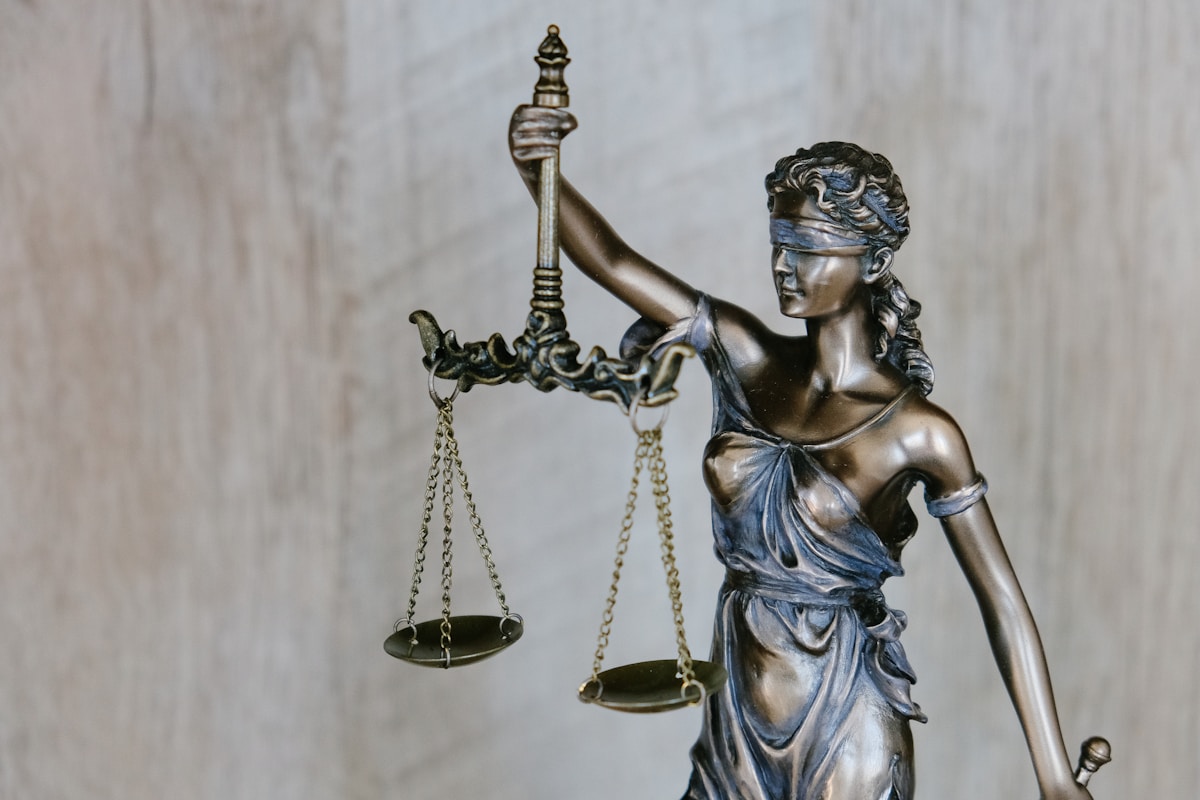Visas Are Privileges, Not Rights': US Defends Soyinka's Visa Revocation
Visas Are Privileges, Not Rights: US Defends Soyinka's Visa Revocation

In a diplomatic development that has captured international attention, the United States Embassy in Lagos has formally defended its decision to revoke the visa of Nigerian Nobel Prize-winning author Wole Soyinka, emphasizing that entry into the United States is a privilege rather than an inherent right. This statement comes after the 91-year-old literary giant announced on October 29, 2025, that his non-immigrant B1/B2 visa had been revoked by U.S. authorities.
Understanding the US Position on Visa Privileges
The U.S. Consulate in Lagos issued a clear statement through Public Diplomacy Officer Julia McKay, reaffirming America's sovereign authority over immigration matters. "Visas are a privilege, not a right. Every country, including the United States, can determine who enters its borders," the official statement read. This position underscores a fundamental principle of international immigration law—that no foreign national possesses an automatic right to enter another country, regardless of their status or accomplishments.

Under Title 22 of the Code of Federal Regulations (CFR) Section 41.122, the United States retains the authority to revoke visas at any time "whenever circumstances warrant." The Consulate emphasized that visa records remain confidential under U.S. law, preventing officials from discussing specific individual cases publicly. However, they confirmed that "visas may be revoked at any time, at the discretion of the U.S. government."
Who is Wole Soyinka? Understanding the Global Impact
Professor Wole Soyinka stands as one of Africa's most celebrated literary figures. In 1986, he became the first African to receive the Nobel Prize in Literature, cementing his place in world literary history. The acclaimed playwright, poet, and novelist has spent decades teaching at prestigious American universities and has been a prominent voice on human rights, democracy, and social justice issues throughout his career.

Soyinka has maintained deep connections with the United States for decades, having previously held a U.S. green card. However, in 2017, he famously destroyed his green card in protest of President Donald Trump's first inauguration, joking during his recent press conference that the card "had an accident" and "fell between a pair of scissors."
The Revocation Details: What We Know
According to the official letter dated October 23, 2025, from the U.S. Consulate General in Lagos, Soyinka's non-immigrant visa was revoked under Department of State regulations. The notification stated that "additional information became available after the visa was issued," though it provided no specific details about what that information entailed.
The letter instructed Soyinka to return his visa for physical cancellation—a request the author found "humorous," asking during his press conference whether anyone in attendance would volunteer to deliver it on his behalf. The visa in question had been issued on April 2, 2024, in Lagos, giving Soyinka less than two years of use before its revocation.
Soyinka's Response and Reflections
During a media gathering at Freedom Park in Lagos titled "Unending Saga: Idi Amin in Whiteface," Soyinka addressed the visa revocation with characteristic wit and candor. "I have no visa; I am banned, obviously, from the United States. And if you want to see me, you know where to find me," he declared to assembled journalists.

The Nobel laureate reflected on his decades-long relationship with the United States, questioning whether any of his past actions might have triggered the decision. "I've started looking back—have I ever misbehaved towards the United States of America? Do I have a history? Have I been convicted? Have I gone against the law anywhere?" he wondered aloud.
Minor Incidents from the Past
With characteristic humor, Soyinka recalled two minor incidents from his extensive travel history to America. The first occurred at Chicago's airport when he was fined $25 for failing to declare green chilies he had placed in his pocket from a London Indian restaurant. The second involved a confrontation with police in Atlanta during the early 1970s over alleged racist conduct by a hotel receptionist.
"These are the only two crimes I can consider myself guilty of in all the decades I've been going to the United States," Soyinka stated, expressing doubt that either decades-old incident connected to the current revocation.
The Political Context: Trump Criticism and Timing
Soyinka has been an outspoken critic of President Donald Trump, recently referring to him as a "white version of Idi Amin"—a reference to the brutal Ugandan dictator who ruled from 1971 to 1979. This comparison came during discussions about authoritarian leadership styles and human rights concerns.
While Soyinka suggested the visa revocation might be connected to his political criticism, he emphasized a broader principle at stake. "It's not about me, I'm not really interested in going back to the United States," he said. "But a principle is involved. Human beings deserve to be treated decently wherever they are."
Broader Implications for U.S. Immigration Policy
This high-profile case has reignited discussions about American immigration policies and the discretionary power wielded by U.S. authorities in visa matters. The revocation comes amid broader efforts by the Trump administration to tighten immigration controls and increase scrutiny of visa holders, particularly from African nations.

Legal experts note that while the U.S. maintains absolute discretion in visa decisions, the lack of transparency in such cases—especially involving prominent international figures—raises questions about due process and diplomatic relations. The confidentiality provisions that prevent officials from discussing specific cases, while protecting privacy, also limit accountability and public understanding of decision-making criteria.
International Reactions and Diplomatic Considerations
The visa revocation of such a globally recognized figure has generated significant international attention, particularly throughout Africa where Soyinka is celebrated as a cultural icon. Nigerian officials and international human rights organizations are closely monitoring the situation, viewing it as potentially indicative of broader trends in U.S.-Africa relations.
The incident highlights the tension between national sovereignty in immigration matters and international norms regarding treatment of distinguished scholars, artists, and intellectuals. While countries retain the legal right to determine who enters their borders, the manner and reasoning behind such decisions can significantly impact diplomatic relationships and cultural exchange programs.
What This Means for Other Visa Holders
For millions of foreign nationals holding U.S. visas, the Soyinka case serves as a reminder that visa status remains provisional and subject to revocation without extensive explanation. The U.S. Consulate's statement reinforces that even longstanding visa holders with clean records may face revocation if authorities determine that "circumstances warrant" such action.
Immigration attorneys advise visa holders to maintain meticulous records of their U.S. travel, comply strictly with visa conditions, and understand that visa issuance does not guarantee entry—U.S. Customs and Border Protection officers retain final authority at ports of entry.
💡 Share This Important Story
This developing story about visa policies and international relations affects travelers worldwide. Share this article to help others understand the complex dynamics of U.S. immigration law and the implications for international travel. Use the social share buttons to spread awareness about this significant diplomatic development.
Frequently Asked Questions
Can the U.S. revoke a visa without giving a reason?
Yes, under U.S. law, the government can revoke visas at any time "whenever circumstances warrant" under 22 CFR 41.122. Visa records are confidential, and officials are not required to provide specific reasons for revocation to the public or even to the visa holder in many cases.
What does it mean that visas are privileges, not rights?
This principle means that no foreign national has an automatic legal right to enter the United States. Visa issuance is a discretionary act by the U.S. government, which can grant or deny entry based on its own criteria and national security considerations. Even approved visas can be revoked at the government's discretion.
Can someone reapply after their visa is revoked?
Yes, the revocation letter sent to Professor Soyinka stated, "If you have plans to travel to the United States, you must apply again to re-establish your qualifications for a new non-immigrant visa." However, reapplication does not guarantee approval, and the reasons for the original revocation may affect future applications.
Does political criticism of the U.S. government affect visa status?
While the First Amendment protects free speech within the United States, foreign nationals do not have the same constitutional protections regarding visa issuance. U.S. authorities maintain broad discretion in visa decisions, though they typically do not publicly acknowledge political considerations as factors in individual cases.
What is a B1/B2 visa and who needs it?
A B1/B2 visa is a non-immigrant visa for temporary business (B1) or tourism/medical treatment (B2) visits to the United States. Citizens of countries without visa waiver agreements with the U.S., including Nigeria, must obtain this visa type for short-term visits. It does not permit permanent residence or employment in the United States.
Looking Forward: The Future of U.S.-International Relations
As this story continues to develop, it raises important questions about the balance between national security concerns and international cooperation in cultural and academic exchange. Professor Soyinka has stated he will not reapply for a U.S. visa, choosing instead to remain accessible to those who wish to meet him in other parts of the world.
The case underscores the ongoing evolution of American immigration policy and its impact on international figures, scholars, and artists who have historically maintained close ties with U.S. institutions. As global mobility becomes increasingly important for cultural exchange and international understanding, incidents like this highlight the complex intersection of sovereignty, diplomacy, and individual rights in the modern world.